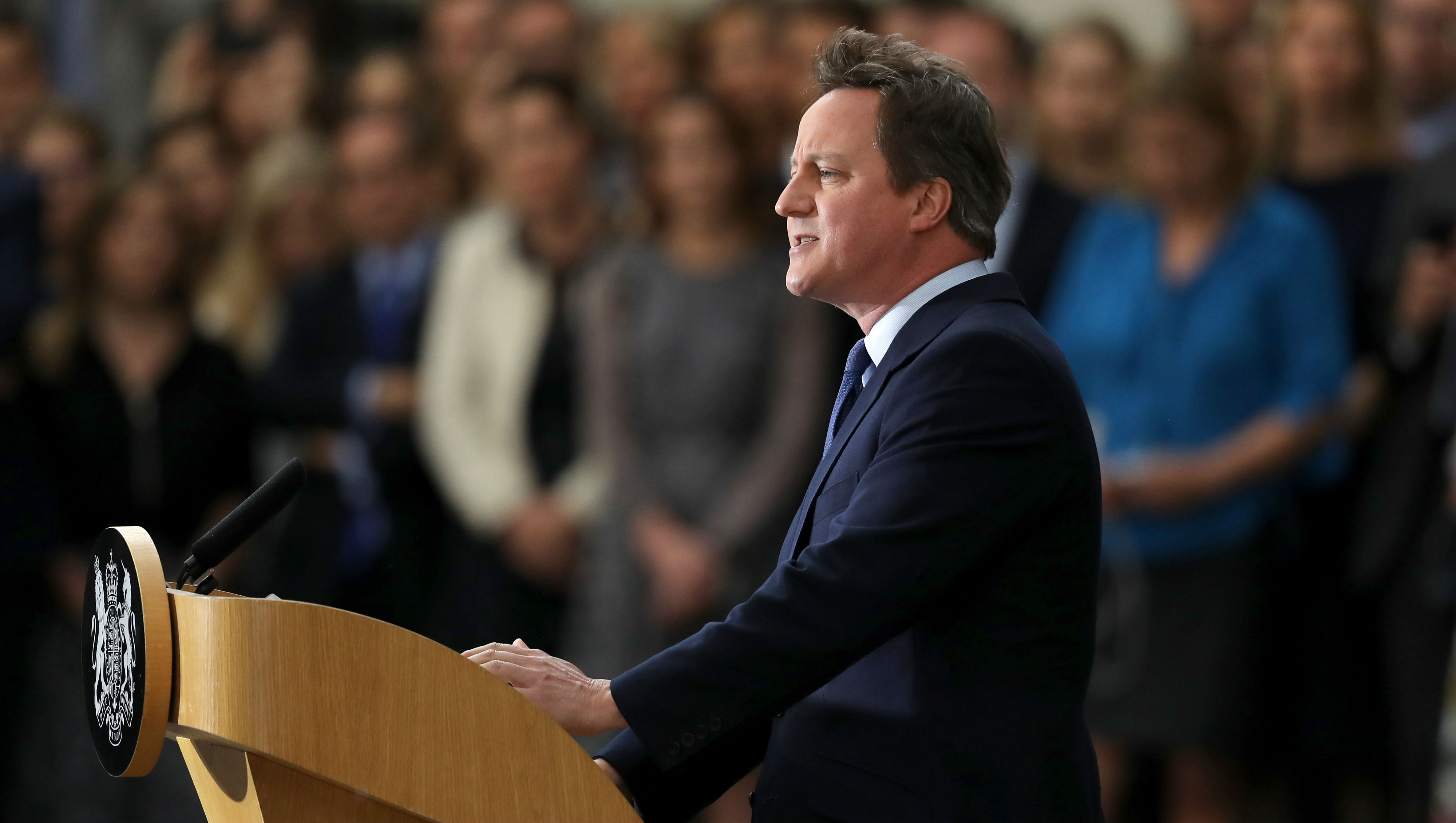Brexit: Where are we, eight months on from EU referendum?
A lot has happened since the UK voted to leave the European Union last June

A free daily email with the biggest news stories of the day – and the best features from TheWeek.com
You are now subscribed
Your newsletter sign-up was successful
Within a day of last year's EU referendum, David Cameron had resigned as prime minister and Scottish independence was back on the agenda. A week later, Jeremy Corbyn faced a leadership challenge and the Ukip's Nigel Farage had stepped down.
"While none of these alone is unprecedented, there has been no moment in the post-War period when so much has happened almost at once," says Dr Simon Usherwood, in a report by UK in a Changing Europe.
So eight months on from the biggest political upheaval of a generation, where are we now?
The Week
Escape your echo chamber. Get the facts behind the news, plus analysis from multiple perspectives.

Sign up for The Week's Free Newsletters
From our morning news briefing to a weekly Good News Newsletter, get the best of The Week delivered directly to your inbox.
From our morning news briefing to a weekly Good News Newsletter, get the best of The Week delivered directly to your inbox.
Darling buds of May
The most obvious change since the referendum has been at No 10, with Cameron replaced by former home secretary Theresa May.
"No new PM in the modern era will have entered Downing Street with an in-tray as full and fateful as hers," said The Times. "She will have to reconcile her desire to 'make sure our economy works for everyone', which depends on growth, with Brexit, which is likely to hurt it."
Her arrival brought a "culture change" at the top levels of government, with May "sweeping away the Cameron clique: Notting Hill and public school replaced with grammar-school grafters", says Polly Toynbee in The Guardian.
A free daily email with the biggest news stories of the day – and the best features from TheWeek.com
Out went leading names of previous Tory administrations including George Osborne, Michael Gove and Oliver Letwin, while promotions came for Philip Hammond, Amber Rudd and Andrea Leadsom.
Hard Brexit
In her first substantial speech on Brexit in January, the Prime Minister said remaining in the single market would mean being bound by EU laws, which "to all intents and purposes, would mean not leaving the EU at all". The speech revealed her desire for what has become known as a "hard Brexit", with May's priorities including control of immigration and full access to the customs union.
Under her timetable, the government hopes to conclude all negotiations with the EU's 27 member states by March 2019 - a target described as "optimistic" by European Commission President Jean-Claude Juncker.
"The negotiations will be tough," says The Economist. "Britain's economy is in for a rough ride and, though the government will try to smooth it out, the priority is getting the country out of the EU in the most complete and rapid way possible."
Enemies of the people
The Supreme Court has also been hauled into the Brexit debate after the government appealed a High Court ruling that parliament must authorise its plans to trigger Article 50 - a decision that led to the judges being described as "enemies of the people" by the Daily Mail.
While the withdrawal from the European Union bill passed through the Commons without amendment, it is still being debated in the House of Lords. Brexit Secretary David Davis said last week that he expected it to "ping pong" back to the lower chamber with amendments over the next fortnight, while Labour peer Shami Chakrabarti said the Lords are looking to guarantee parliamentary votes on the final deal and to give EU citizens the right to stay in the UK permanently after Brexit.
-
 Local elections 2026: where are they and who is expected to win?
Local elections 2026: where are they and who is expected to win?The Explainer Labour is braced for heavy losses and U-turn on postponing some council elections hasn’t helped the party’s prospects
-
 6 of the world’s most accessible destinations
6 of the world’s most accessible destinationsThe Week Recommends Experience all of Berlin, Singapore and Sydney
-
 How the FCC’s ‘equal time’ rule works
How the FCC’s ‘equal time’ rule worksIn the Spotlight The law is at the heart of the Colbert-CBS conflict
-
 Local elections 2026: where are they and who is expected to win?
Local elections 2026: where are they and who is expected to win?The Explainer Labour is braced for heavy losses and U-turn on postponing some council elections hasn’t helped the party’s prospects
-
 How corrupt is the UK?
How corrupt is the UK?The Explainer Decline in standards ‘risks becoming a defining feature of our political culture’ as Britain falls to lowest ever score on global index
-
 Supreme Court upholds California gerrymander
Supreme Court upholds California gerrymanderSpeed Read The emergency docket order had no dissents from the court
-
 The high street: Britain’s next political battleground?
The high street: Britain’s next political battleground?In the Spotlight Mass closure of shops and influx of organised crime are fuelling voter anger, and offer an opening for Reform UK
-
 How robust is the rule of law in the US?
How robust is the rule of law in the US?TODAY’S BIG QUESTION John Roberts says the Constitution is ‘unshaken,’ but tensions loom at the Supreme Court
-
 Biggest political break-ups and make-ups of 2025
Biggest political break-ups and make-ups of 2025The Explainer From Trump and Musk to the UK and the EU, Christmas wouldn’t be Christmas without a round-up of the year’s relationship drama
-
 ‘The menu’s other highlights smack of the surreal’
‘The menu’s other highlights smack of the surreal’Instant Opinion Opinion, comment and editorials of the day
-
 Is a Reform-Tory pact becoming more likely?
Is a Reform-Tory pact becoming more likely?Today’s Big Question Nigel Farage’s party is ahead in the polls but still falls well short of a Commons majority, while Conservatives are still losing MPs to Reform